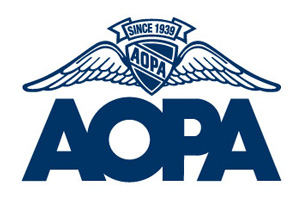10 Tips for Making Your Medical Go Smoothly
- Develop a relationship with an AME with whom you feel comfortable. Most of us will at sometime develop a medical condition that will likely impact our medical certificate. Your AME will be more likely to assist you if he has knowledge of your medical history. Medical problems that have been already previously addressed will be familiar to this AME and not a source of anxiety for you or you’re AME when you report them on your physical. Additionally, by using the same AME he will have a file of all the correspondence to and from the FAA regarding your medical certificate.
- Understand the possible outcomes of the FAA medical Process
- Get plenty of rest before your medical exam. If you need an ECG remember lack of sleep and excessive caffeine can have an adverse impact on the heart rate and rhythm. Get a good nights rest and avoid caffeine prior to your ECG
- Be sure that you currently meet FAA medical standards for the medical certificate class you are requesting. Do you wear glasses? Have you seen an optometrist in the last 2 years? If your worried about meeting the vision standard see your optometrist for a check-up before your flight physical.
Follow this link to FAR part 67 regarding medical standards: http://www.ecfr.gov/cgi-bin/text-idx?tpl=/ecfrbrowse/Title14/14cfr67_main_02.tpl Don’t forget to bring all required documentation. On a special issuance, have diabetes, take thyroid medication? Don’t forget the in most cases FAA will expect you to bring a status report form your treating physician and/or lab work to your flight physical. For example if you take Synthoid for hypothyroidism a recent TSH level must be submitted with your FAA medical. Airline pilots can find a wealth of information by consulting their ALPA resources; general aviation pilots members may resource AOPA for additional medical information. - When in doubt give me a call.
- Have a new diagnosis or medication. Call your AME first to discuss what is needed for your flight physical. All problems are different. It pays to do some of your own research before your appointment. In short, by providing as much information as possible you greatly increase the likelihood of satisfying FAA reviewers and avoid the need to provide additional information at a later date. (see tip number 8 below)
- Have a new conviction for a DUI, refused to take a breathalyzer test. Pilots must report each alcohol-related event, conviction, or administrative action. Each incident requires a separate Notification Letter to the FAA Security and Investigations Division within 60 days. The FAA wants all court documents submitted with the medical. A blood alcohol level of greater than .15 or refusal to submit a blood of breath sample requires deferral to the FAA for further evaluation. If you have a new DUI call to discuss with your AME before your appointment.
- Be prepared to send further information to the FAA upon request.
Occasionally, an FAA reviewer in Oklahoma City feels additional information about a pilot’s medical condition beyond the information submitted by the AME is required. When this occurs the pilot receives a letter from the FAA after they have been issued a medical certificate by their AME. The letter states that the FAA is unable to determine their eligibility for an airman medical certificate based on incomplete information regarding their medical condition. The FAA specifically requests information and/or further studies to be submitted prior to an eligibility determination. Usually, there is a 30-day window from the date of the letter on this submission requirement. Attempt to comply with this time line and submit all requested information in a timely manner. If it is impossible to complete this requirement prior to the 30-day deadline, call the FAA Aviation Medical Certification Division (AMCD) at 405.954.4821 to request a 30-day extension if needed. You may continue to operate an aircraft with the current medical certificate issued by the AME pending a final determination from the FAA. It is critically important to comply with this request as failure to do so will result in revocation of your medical certificate. - Fill out the medical history portion of Form 8500 on line at https://medxpress.faa.gov/
- If you have a condition that will require specific medical testing for a special issuance have the testing done well in advance of your medical and comply with all of the requests documented in your special issuance letter. Also remember to bring your special issuance paperwork with you for your appointment.



